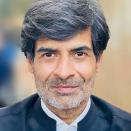The Russia-Ukraine war is a turning point for the European Union, as this conflict has challenged the EU’s fundamental premise on security. Yet, while the Western alliance’s—comprising the United States, Europe, and its allies—support for Ukraine has strengthened, many countries of the Global South, representing 85 percent of the world’s population and 39 percent of its GDP, have not aligned with the Western understanding and narratives about the war or with the assessments of its origins and implications.
In several United Nations resolutions that sought to reprimand Russia for its invasion of Ukraine, countries of significance across Africa, Asia, and Latin America abstained; a few countries of the Global South even voted against them. Hardly any of these countries joined the Western sanctions against Russia, laying bare a wide global divide.
The battles being fought on the ground are as critical to the EU’s future as the battle of narratives. In a sense, the larger battleground is the Global South, and the prize is the hearts and minds of its countries. It appears this gulf in perspectives is only widening. For a variety of reasons, the Kremlin’s propositions are not being dismissed by many in the Global South, and, in some cases, they have found resonance. This is despite European leaders such as the EU’s chief diplomat Josep Borrell and German Chancellor Olaf Scholz reaching out to the Global South.
The perception that the positions taken by nations of the Global South are simply a case of neutrality is rather limited. Many countries—including India, Bangladesh, Sri Lanka, Brazil, South Africa, Vietnam, Indonesia, and the United Arab Emirates—are neither anti-West nor pro-Russia, but they lack broader sympathy for Europe for a variety of reasons, despite their strong and all-encompassing ties with the continent. Attitudes are being shaped more by assessments of the past relationship with Europe than by the war.
It would be helpful to confront some of these hard truths.
Misperceptions
Berlin, Paris, and Brussels should be mindful of what defines the priorities of these countries, including their geographies, histories, interests, dependencies, conflicts, security concerns, and economic imperatives. Countries do not view the current situation from the European standpoint, but from their own circumstances and lived experiences. Even as all these factors vary for different countries in different continents, a shared reality creates underlying patterns—and colonialism is one such all-engulfing shadow.
For Europeans, contemporary history may have begun on February 24, 2022. For other parts of the world, the hostilities in Ukraine are part of a continuum of violence that has spanned decades. For example, there is India’s long-standing and occasionally violent management of the aggressive and nuclear-armed China-Pakistan axis on its borders, for which Europe seems to have no empathy. Indeed, apathy is on full display when Brussels, Berlin, and other European capitals humor Pakistan-based and backed religious radicals and insurrectionists, and privilege their trade and economic ties with China even as a belligerent Beijing seeks to redraw the political map in the Himalayas.
Memories of the Western retreat during the COVID-19 pandemic, whilst hoarding vaccines at the expense of less privileged citizens in the developing world, are still fresh. The warm reception accorded to Ukrainian refugees compared with xenophobic attitudes toward Afghan and Syrian refugees further contributed to the decline in moral standing. To make matters worse, populist white supremacist movements are now mainstreamed across the continent, even as voices from Europe sermonize to others about their democracies and societies.
The West’s long history of reckless interventions and exits in Iraq, Afghanistan, and Libya has also resulted in widespread resentment. The current war is being contextualized within the West’s own previous actions, resulting in allegations of hypocrisy and double standards. Russian President Vladimir Putin is exploiting this disillusionment. For many smaller countries that suffered centuries of collective humiliation through European colonial rule, “neutrality” is also an act of defiance and an assertion of sovereignty. This is exacerbated by the fact that former European colonial powers are yet to acknowledge and address many historical wrongs. In sum, there is a huge mismatch between Europe’s self-perception as a bastion of values and what the Global South believes.
Broadly speaking, countries in the Global South are against the war, particularly since they are the ones suffering from its disruptive impact the most. However, even if Russian actions may be more to blame, many believe European sanctions are responsible for the crisis of the three Fs—food, fuel, and fertilizers—with their take on the war being shaped by the hardships they are subjected to. With a preference for peace, many in the Global South view the West’s continued arming of Ukraine and the aggressive rhetoric of its leaders and commentariat as counterproductive. For the rest of the world, while Ukraine has been invaded by Russia, the resulting global suffering is blamed equally on Russia and NATO. That’s the hard truth.
European capitals should recognize that the Global South’s neutrality has not translated into substantial political or material support for Russia. Instead, countries such as India have provided significant humanitarian support to Ukraine and are likely to assist in reconstruction. They have publicly and privately called out Moscow, despite needing to engage with the Kremlin for their defense sector and energy needs. India is not the only one having to do this. However, European policymakers appear insensitive to these concerns that predate the current war. Europe is as much a realpolitik actor as anyone else, even if it prefers to cloak its actions in normative vocabulary. Just as the EU’s security and economic compulsions dictate its choices, the same goes for countries of the Global South.
The hierarchy of concerns goes together with the hierarchy of decision-making. For decades, countries of the Global South have called for equitable representation in multilateral institutions like the UN, which continue to be defined by the legacies of colonialism and hegemony. The failure to reform these institutions has enabled perceptions that a Western-dominated order—that perpetuates imbalances—is under attack, not global order per se.
Doing Things Differently
The reality of the Global South’s positions on the Russia-Ukraine war is complex and warrants deeper reflection. Europe should reflect deeply as to why it is confronted with such reticence while being among the most generous donors of development assistance. Despite the West’s potential to offer better alternatives and opportunities than Moscow and Beijing, it is struggling for influence in the Global South.
European capitals could be attentive to conflicts transpiring elsewhere and adopt a proactive, principled, and fair approach to them as well. Setting a good example always helps. It is also time for Europe to interact with the Global South on equal terms and abdicate its patronizing and condescending approach. All countries are independent sovereign states with agency, and “lecturing” rather than having a dialogue is unhelpful. This needs to change when it comes to matters of war and peace as much as it needs to change for trade and climate change.
There is also a sense of disappointment that plurilateral forums—such as the G20—that can work to respond to the concerns of developing countries, have been hijacked by the posturing over the war at the cost of other critical challenges. It would strengthen the partnership between the North and South if the sanctity and purpose of forums discussing the climate challenge, development concerns, and economic issues could be preserved.
Recently, in the case of Europe’s ties with India, a greater mutual understanding of strategic choices and robust dialogue has ensured continuous cooperation despite differing positions. This is a good model for others as well.
Becoming Part of the Everyday Conversation
It would be useful for Europe to enhance outreach and adopt better messaging so that the Global South does not view the war as a European issue, but rather one with global implications. A world that does not respect the UN Charter would be anarchic and would intensify security concerns everywhere. This could be particularly existential for smaller and less powerful countries, as these kinds of wars could set precedents that the great powers can get away with anything in their apparent spheres of influence.
European capitals should also throw their weight behind reforming global multilateral institutions to create a more level playing field. Countries of the Global South are emerging rapidly and demanding their rightful seats at the international table. If Brussels and Berlin want non-Western nations to play a stronger role in stabilizing the rules-based global order, they must create stakeholders that believe in such an order. In 2022, Chancellor Scholz emphasized that Berlin could not expect countries in the Global South to not aspire for affluence, but it could instead work on sharing technologies to enable countries to achieve growth in a climate-friendly manner. This laudable approach is one that must be encouraged.
Finally, if European capitals wish to push the needle of opinion in the Global South in their favor, they should engage intently with strategic communities and think tanks that play a role in shaping narratives and policy in this vast and heterogenous region. Europe needs to be part of the everyday conversation, not the demanding guest that turns up when it wants something.
Shairee Malhotra is Associate Fellow, Europe, with the Observer Research Foundation (ORF)’s Strategic Studies Program.
Samir Saran is Director of the Observer Research Foundation (ORF) in New Delhi.



